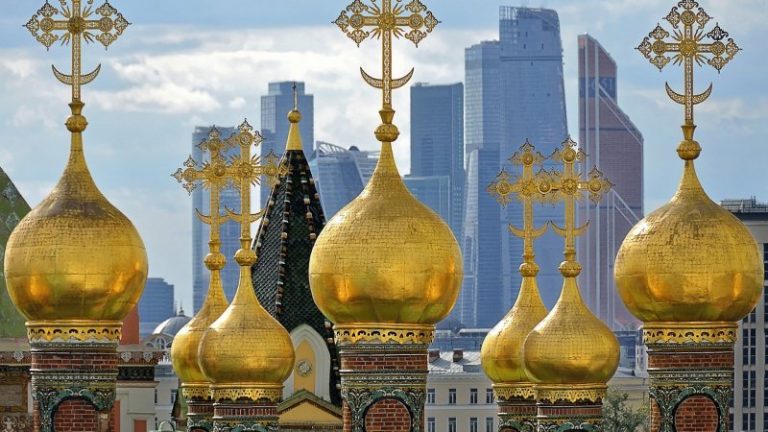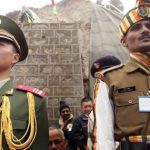The Russian elite has changed its tune for the past twenty years as for the world’s targeted geopolitical framework and has finally put an end to European integration. The Kremlin does not treat the world’s key geopolitical actors as strategic allies. All of them, even China, are not more than tactical “friends”, used to meet certain targets by cooperation. Russia’s agenda today is neither the East nor the West. It’s Russia’s own way without stable friends or partners, but with offensive attempts to have its thumb on the scale in various parts of the world through short-term geopolitical alliances.
The idea to integrate Russia into the global European social and cultural environment is not new. It comes into Russian and European discourse every now and then. But the outcome is always the same – following rapprochement with Europe, Moscow does an about-face, Russia slips into isolation, launches an arms race, enters local conflicts, followed by a thaw, when new pro-Europeans celebrate a short-term victory. Then everything starts with a clean slate. This agenda prevailed at Russia for much of its existence as a state, adjusted for social and economic developments.
After 2000, this party has been gradually put on the back foot. The elites have increasingly taken a dim view of Russia as a European project. The energy price hike before 2008 made the Kremlin walk tall. Russia has consequently slipped into self-isolation, initiated local conflicts, most every European integration project popped, and the West was declared an enemy again. If Greater Europe with Russia concept looked still born but had certain meaning back in the 2000s and early 10s, the words about Europe from Vladivostok to Lisbon are not more than a bait and tactical ploy considering Crimea’s annexation and the invasion of eastern Ukraine. Nothing other than the Kremlin’s desire to resolve some specific important issue follows them.
It could be assumed that modern Russia’s history would enter the cycle once again and Putin’s successor would maintain pro-Western stance, the Westerners would win again, and Russia would start building a liberal empire and invite Western investors to develop resources. But it’s an unlikely prospect today over:
– the Russian elite’s way of thinking,
– fading control over the country,
– China’s stance.
So, Russia is expected to make a U-turn from the West, with the European concept destined for failure.
The way of thinking by Russian elites. There is no meaningful pro-European opposition in Russia today voicing an opinion that really differs from that by the Kremlin. Most of the narratives, from liberal to far-right, arise from political concepts shaped by numerous special agencies in this country. They serve various purposes mostly to suppress an emerging independent political and social movement by the opposition and to keep an eye on the people when they need to cool down. So, Russian elites are playing to be in the driver’s seat, letting the people support the opposition movements, while suppressing their independence. These movements, or in fact different groups at the Kremlin (so called towers), competeto gain political influence and money. This competition might be tough and even open, through key opinion leaders or state-controlled political actors. But none of such political movements will reshape its voice to turn into a real opposition with a distinct geopolitical agenda. Even the most liberal political actors in Russia will brace for the line shaped by the Kremlin. And there is no pro-Western group there eager to strengthen Russia’s euro integration narrative.
Russia has shaped a rigid framework of social groups where “siloviki” is the most heavyweight one, with special agencies dominating there. Russia’s “siloviki” are primary beneficiaries of the current regime. There are no makings for a European group to emerge there, as any “silovik” in Russia treats the world as bipolar and is set up for identifying enemies in the outside world. This applies even to the young generation of elites, who grew up amid the most severe information pressure and distorted history, where the West is full of political, military, moral and ethical evil. Entrepreneurs, industrialists or bankers, who might uphold more pro-Western values a priori and look up to the Western markets, do not play a significant role in today’s Russia. Moreover, “siloviki” control part of the business. It looks impossible to reverse the trend so far.
Fading control over the country. The Kremlin’s control over vast Russia’s land is fading year by year. This applies to both national republics and huge undeveloped or abandoned areas. The people there are still under the media’s sway, shaping the narratives for geopolitical threats. Russia’s special agencies have the media under their thumb. Television shapes opinion in lower social strata, while films and the Internet affect the middle and upper strata. Any popular Russian YouTube blogger is not an independent actor, in fact, but serves a certain function. The Kremlin’s information policy is increasingly focused on distorting reality and history, and is ratcheting up threats, most of them associated with the West. Russia’s average man views Europe / the U.S. as full of evil, completely contradicting the values, desires and dreams of the Russian people. This image of the enemy features a huge number of ins and outs and transforms, following Moscow’s geopolitical maneuvers.
Such population monitoring system is effective only if there is a source of threats on the media landscape – external or internal. But the image of external enemy is a stronger driver. It mobilizes the people, distracts them from social and economic problems and protests, thus shaping the younger generation in a way beneficial to the elites. If we remove the external enemy from this pattern, the Kremlin’s house of cards will collapse immediately. That is why all real beneficiaries of Russian political actors, pro-government or opposition, do not intend to do this.
China’s stance. For the first time in history, apart from Greater Europe from Vladivostok to Lisbon, the Russian discourse features Greater Eurasia from the Chinese Haikou to Kaliningrad. The Kremlin is rather skeptical of the possibility to integrate with China, but rapprochement is on the way. China is strengthening its hand in Central Asia and Eastern Europe, of traditional interest by Russia, being on the rise at Russia’s Asian part. Beijing does not nail Russia down to transit to democracy and turns a blind eye to the interests of neighboring states. China’s elites are as flexible as possible, like in Russia. But unlike the Kremlin, Beijing executes not just tactics, but also strategy. It means that Greater Eurasia, if implemented, will serve mainly China’s interests, not Russia’s. Russian elite is as cynical as corrupt. So, if China bids a fair price for cooperation under a common global project, the Russians will agree. But the Chinese avoid buying expensive things that can be taken for free or for less money. Greater Eurasia will seem in prospect after Russia is diluted and further isolated from the West, but it will exclude Greater Europe in fact.
Scientific and technical revolution. Moscow is so far behind the West and China in technology race that it is unlikely to fill the gap. So, mineral stock and people, to a lesser extent, remain the main resource for Russia. Reinforced resource-based economy will widen the gap between the poor or and the rich, the middle class not being shaped. An effective market economy or democracy are hardly to be built under such conditions.

Read also: Today’s Russia: Black Holes
Russia’s current anti-European stance is not a cyclical phenomenon. Key system drivers, having strengthened their influence over the last decade, made Russia pass the point of no return, actually, for its integration into Europe. Russia, for the first time in many years, is on the verge of a complete drop out of the European social and cultural environment. The European concept has failed for the Russian Empire. It might be implemented, however, in some of its parts if the Federation breaks to pieces.



